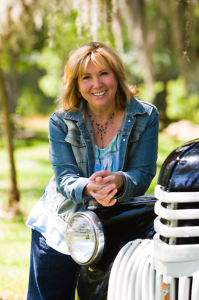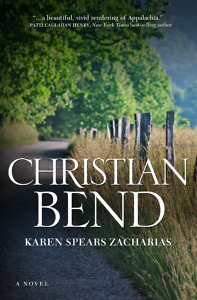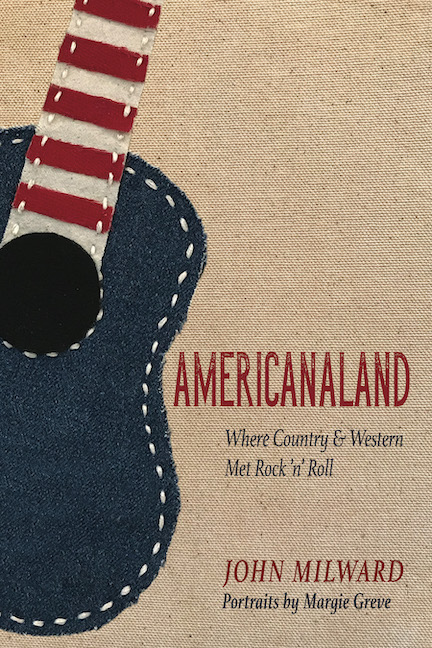Trauma, Suffering, and Joy
Karen Spears Zacharias winds up her Appalachian trilogy
Nestled in a loop of the Holston River well downstream of Kingsport, Tennessee, Christian Bend is the kind of small community where everyone knows everybody’s business, sorrows, sins, and strengths. In Christian Bend, the last of three novels exploring the lives of the community’s residents, Karen Spears Zacharias weaves together the traumas and secrets developed in Mother of Rain and Burdy, adding to the complex fabric set up in them.
 In Mother of Rain, a mentally unstable woman, Maizee, marries a local boy, Zeb, and gives birth to a son, Rain, who loses his hearing to a childhood illness. Zeb goes off to fight in World War II and never returns, while Maizee becomes suicidal. Rain is brought up by a kindly uncle and aunt in Christian Bend.
In Mother of Rain, a mentally unstable woman, Maizee, marries a local boy, Zeb, and gives birth to a son, Rain, who loses his hearing to a childhood illness. Zeb goes off to fight in World War II and never returns, while Maizee becomes suicidal. Rain is brought up by a kindly uncle and aunt in Christian Bend.
In Burdy, the title character, a widow and a central character in all three novels, receives a letter from Zeb, now long presumed dead. She sneaks off to France to find him-and a rich Frenchman who becomes smitten with her, too, as it turns out. Back in Christian Bend, she tells no one of her adventures. Rain grows up, leaves the community for college, and establishes a career in the North.
Christian Bend picks up with Burdy, now eighty, lying in a Knoxville hospital bed and recovering from a mass shooting in which three others have died. Other characters swirl into the mix of what becomes, among other things, a mystery to identify the shooter. Rain comes home when he hears of Burdy’s shooting, finds the letters Burdy received from Zeb, and is furious she never told him his father is alive. Resentments, secrets, and trauma abound as the plot delivers more violent deaths.
 Like the earlier novels in the trilogy, Christian Bend deals with characters who retain their old customs and beliefs in what outsiders would consider superstition. Burdy, for example, is recognized in the community as someone with “the gift” of seeing beneath the rational world. There are “haints” in tunnels and rumors of witchery; the visions and dreams of a psychic are taken seriously.
Like the earlier novels in the trilogy, Christian Bend deals with characters who retain their old customs and beliefs in what outsiders would consider superstition. Burdy, for example, is recognized in the community as someone with “the gift” of seeing beneath the rational world. There are “haints” in tunnels and rumors of witchery; the visions and dreams of a psychic are taken seriously.
The characters carry this heritage into the world of 1987, with its stock-market crash and growing problems with AIDS and drug addiction. The isolation and values of their small community have strengthened them in the face of tragedy-they know how to shed tears and wipe them away.
Zacharias works several romantic relationships into this installment, and her language often borrows from the idioms of romance: “Her dark lashes were moist, her green eyes, usually flickering with joy, were clouded, troubled.” But the central focus of these novels is the way a materially impoverished but lush Appalachian environment shapes its people. “When a person grows up here, they can do without a lot of things, but not without beauty,” Zeb says. “It’s one of God’s character traits, you know.”

Ralph Bowden, who holds a Ph.D. from the University of North Carolina, has worked as an electrical engineer, history professor, home builder, alternative-energy consultant, and technical writer. A former resident of both Knoxville and Chattanooga, he lives in Cookeville.


